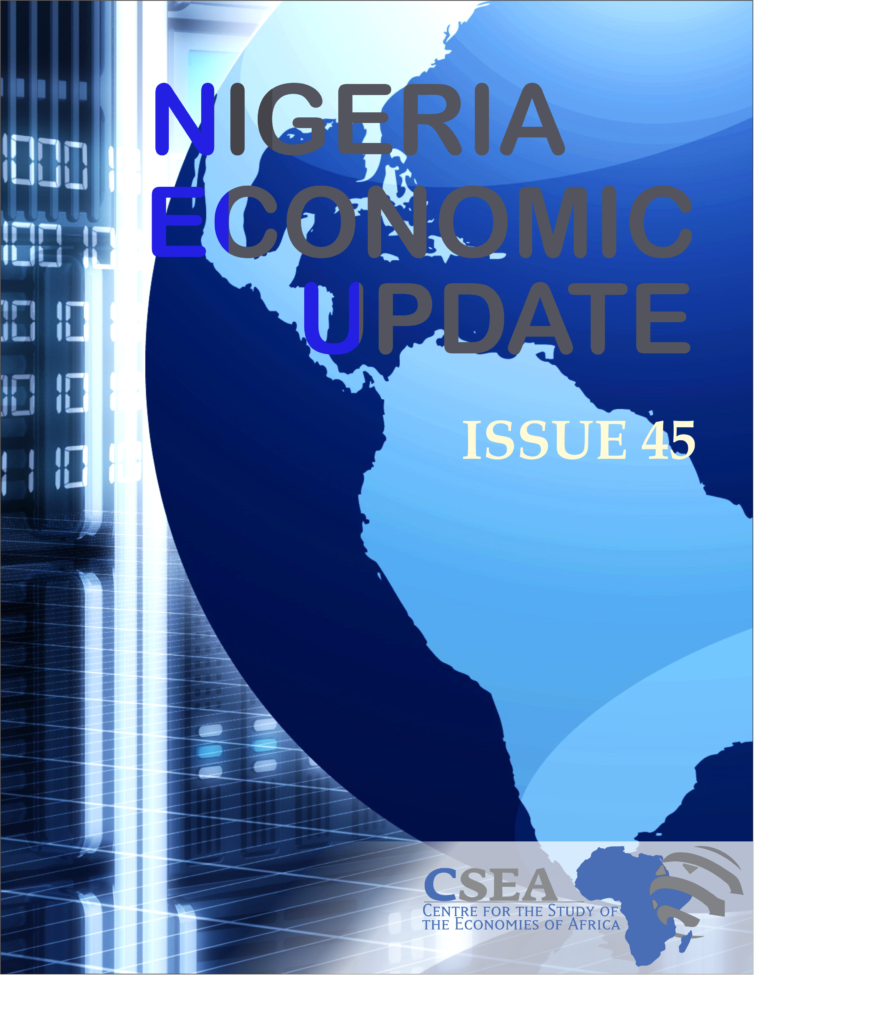According to the latest CBN financial inclusion report, overall progress towards achieving the Nigeria Financial Inclusion Strategy (NFIS) fell short of the annualized target in 2017. The World Bank’s Findex database also shows that ownership of an account with a financial institution or a mobile money provider dropped by 4 percentage points from 44% in 2016 to 40% in 20171. The gender disparity in account ownership is greatly manifested, with 51% men owning an account compared to 27% women. Although critical themes were outlined to scale up financial inclusion targets in 2017, factors such as religious and cultural bias to the uptake of financial products, worsening levels of unemployment, and high levels of informality in the economy remained setbacks toward achieving higher rates of financial inclusion in Nigeria.
Macroeconomic Report & Economic Updates

November 21, 2018
Nigeria Economic Update (Issue 45)
According to the latest CBN financial inclusion report, overall progress towards achieving the Nigeria Financial Inclusion Strategy (NFIS) fell short of the annualized target in 2017. The World Bank’s Findex database also shows that ownership of an account with a financial institution or a mobile money provider dropped by 4 percentage points from 44% in […]
Read →
Related
Nigeria Economic Update (Issue 16)
Nigerias Bonny light price declined by 7.1 percent from $40.19 per barrel on March 24, 2016 to $37.32 per barrel on April 1, 20162. OPEC weekly basket price also decreased by 3 percent from $35.81 per barrel to $34.74 per barrel within the same period3. The remerged downward trend in crude oil price is traceable to concerns over the likely failure of the oil production freeze deal between Saudi Arabia and Iran4. The outcome of the oil production freeze meeting which is scheduled to hold on April 17, 2016, will give further direction for oil supply regulation.
